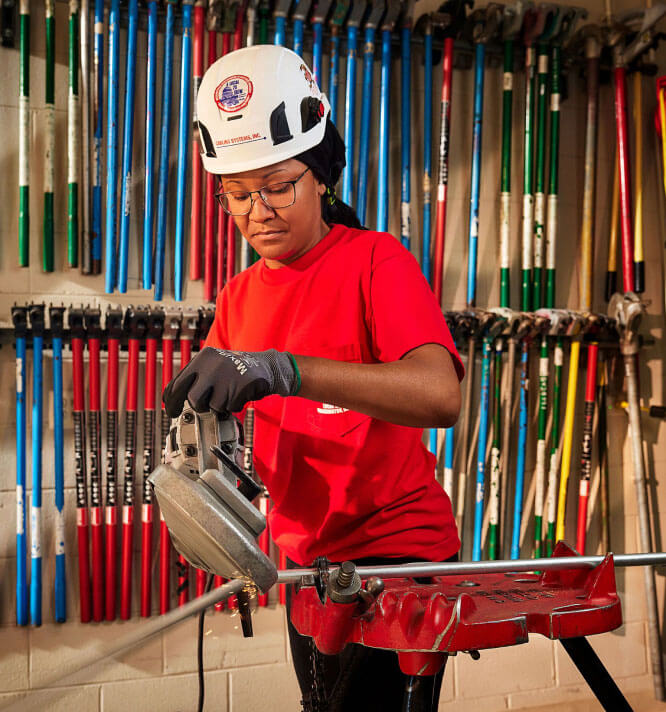

For people in the Washington, D.C., area who are unemployed or underemployed and considering a career in the electrical trade, the Building Futures, AFL-CIO pre-apprenticeship program can help them choose their next steps. This six-week pre-apprenticeship program is held four to six times a year.
As part of it, a special workshop gives potential electricians an even stronger taste of being an apprentice and journeyman electrician. The goals of this day-long workshop are to give details about the apprenticeship, address attendees’ individual goals, tour the training facility, outline the application process, and offer hands-on exercises.
At a recent Building Futures workshop led by Kevin Burton, Assistant Director of the Joint Apprenticeship and Training Committee (JATC), attendees learned what to expect:
- How an apprenticeship works: The apprenticeship sessions are held one day every two weeks, which enables people to study and work as electrical apprentices in the field. Students who attend class and pass that day’s exam receive a paycheck for the time they spend in class. Approximately 900 people participate in the apprenticeships, and 100 to 125 people graduate from the program each year.
- Benefits of the apprenticeship program: This five-year program requires no tuition, no book fees, and no prior experience. People graduate with the skills to become a foreman, an estimator, a company owner, an instructor, or more—with no student debt. One of the main criteria people need to join is “willingness to want to learn the electrical trade,” Burton said.
- Benefits of being a journeyman electrician: As a journeyman electrician, graduates receive great pay and health care and retirement benefits. They also get to join an active community: a bowling team, a motorcycle club, a minority group, a special club for apprentices, and the like.
- Stories from apprentices and graduates: Perhaps best of all, the workshop let potential apprentices learn from actual students and a staff person familiar with the program. “Applicants enjoy a mixture of direct feedback from someone living the experience,” said Burton.
Recent workshop attendees heard from two current apprentices and Burton herself, who graduated from the apprenticeship program in 2006. She has been in the military and was used to the hierarchy, structure, and camaraderie that the apprenticeship program provides. “It was like coming home,” she said.
Because the program gives up to 60 college credits through the American Council on Education, apprentices have a leg up if they later wish to pursue a college degree. Burton tells how this benefit helped her; she now is studying law. “Having those credits and that structure encouraged me to go that route,” she said.
The training that apprentices receive is also versatile. A journeyman can work anywhere in the United States or Canada without needing additional training. Many people who teach are electricians from the field. For example, Burton does trainings and speaks across the country. “I don’t think I’d have the opportunity without being in IBEW,” she said. “Once you learn this trade…you have something to last you a lifetime…. It’s an endless amount of opportunity.”
The JATC is sponsored by the Electrical Alliance, a cooperative effort between the Washington, D.C. Chapter of National Electrical Contractors Association (NECA) and the International Brotherhood of Electrical Workers (IBEW), Local 26. Learn more at www.washdcjatc.org.




